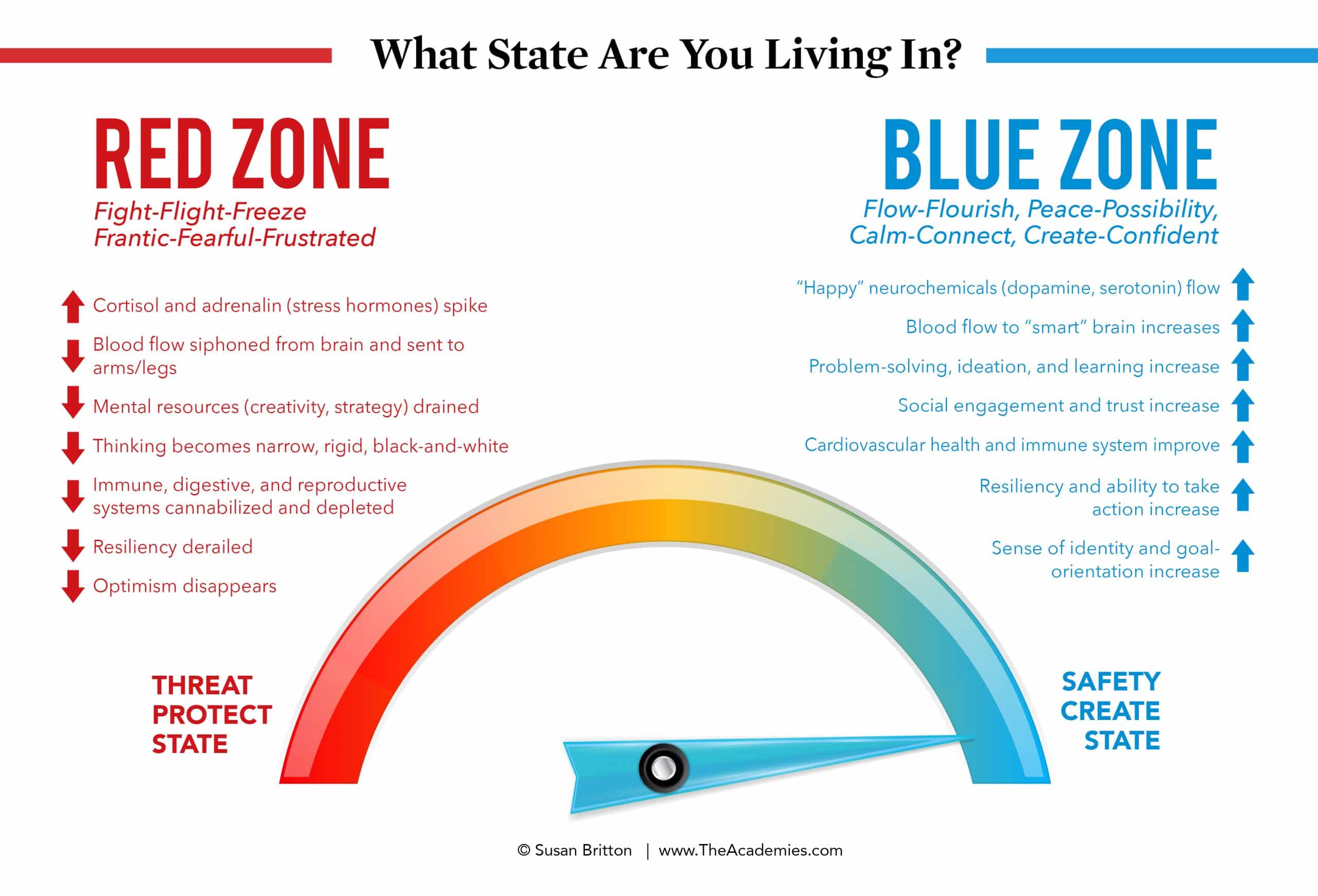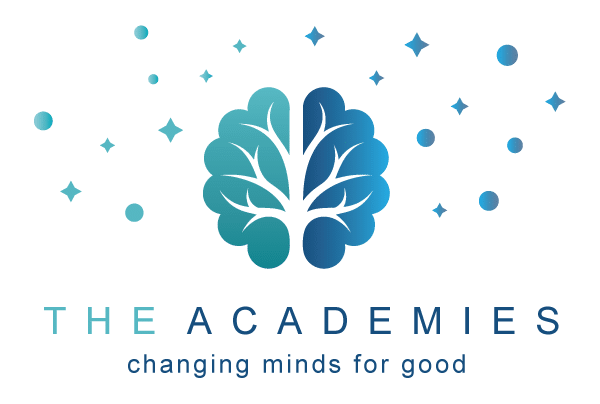The Neuroscience Advantage in Coaching
A neuroscience-based approach to coaching gives you an advantage in supporting change. Just as doctors have scalpels, painters have brushes, and mechanics have wrenches, coaches have tools. These tools start with the ICF Core Coaching Competencies. They are powerful and effective as you embody and express them. In addition, when the ICF competencies are paired with a brain-friendly approach, they can bring exponential leverage for change.
Brain-Friendly Coach Approach
Neuroscience research has mushroomed in the last several decades, and The Academies has been at the forefront of curating, synthesizing, and incorporating these findings into the field of coaching. For nearly 10 years, our coaching curriculum has translated neuroscience into understandable concepts like neural circuitry and chemistry, with proprietary models like Red Zone | Blue Zone that bring you accessible, memorable, and effective tools for coaching like our Coaching Handbook with Neuroscience-informed “How To’s” for each of the 8 ICF Core Competencies.

Neural Circuitry and Chemistry
Neuroscience is a perfect complement to coaching. Why? Because change begins on the inside. Literally! It involves formation of new neural circuits in the brain (aka neuroplasticity) and intentional balancing of the neurochemical cocktail that influences our mood, which, in turn, affects our thinking. Simply put, the change your coaching clients seek requires an inside change in neural Circuitry & Chemistry…
Red Zone | Blue Zone
The brain is the key organ that interprets whether people or situations feel threatening or safe. Neuroscience helps us recognize that, when it comes to achieving change, our brain either works FOR us, or AGAINST us. The Red Zone | Blue Zone image captures a number of the biological changes that happen in the brain and body when we are in a Red Zone state vs a Blue Zone state.

Neuroscience-informed “How To’s” for each of the 8 ICF Core Competencies
The Academies has identified key neuroscience and psychology concepts that undergird each of the ICF 8 Core Competencies—neuroplasticity, neuroception, top-down vs bottom-up brain processing, emotional contagion, emotion regulation, biology of psychological safety, cellular “addiction” of emotions, conscious vs unconscious processing rates, the brain’s propensity for meaning-making, unconscious bias, defenses, cognitive distortions, and more.
All of our coaching courses center around a series of Venn Diagrams with the WHAT, WHY, & HOW TO for each of the competencies, anchoring the competencies to neuroscience and teaching you coaching tools designed to work FOR and not AGAINST the brain.
Bottom Line
Whether you’re just starting your coaching journey or well on your way, you’ll come away from The Academies programs with:
- Coaching education that will allow you to demonstrate the required coaching skills necessary to pass an ACC or PCC performance evaluation,
- An understanding of how the ICF Core Coaching Competencies connect to neuroscience, and
- Research-informed coaching techniques that support people to create the change they want to see in their lives.
The Academies is committed to the intersection of coaching and neuroscience as we partner with you and others in “Changing Minds, for Good.” To dive deeper into The Academies work on how neuroscience and coaching complement each other, contact us today!
Our Courses
We offer all neuroscience-based programming; courses in career, leadership and strengths.
Red Zone | Blue Zone
What state of mind are you living in?
Threat Protect State
Fight-Flight-Freeze
Frantic-Fearful-Frustrated
* Cortisol and adrenalin (stress hormones) spike
* Blood flow siphoned from brain and sent to arms/legs
* Mental resources (creativity, strategy) drained
* Thinking becomes narrow, rigid, black-and-white
* Immune, digestive, reproductive systems cannabilized/depleted
* Resiliency derailed
* Optimism disappears
Safety Create State
Flow-Flourish, Peace-Possibility
Calm-Connect, Create-Confident
* “Happy” neurochemicals (dopamine, serotonin) flow
* Blood flow to “smart” brain increases
* Problem-solving, ideation, and learning increases
* Social engagement and trust increases
* Cardiovascular health/immune system improve
* Resiliency and ability to take action increases
* Sense of identity/goal-orientation increase
